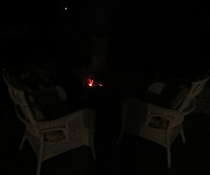 King David “The Pharisee took up his position and spoke this prayer to himself,O God, I thank you that I am not like the rest of humanity greedy, dishonest, adulterous or even like this tax collector. I fast twice a week…But the tax collector stood off at a distance and would not even raise his eyes to heaven but beat his breast and prayed,O God, be merciful to me a sinner.
King David “The Pharisee took up his position and spoke this prayer to himself,O God, I thank you that I am not like the rest of humanity greedy, dishonest, adulterous or even like this tax collector. I fast twice a week…But the tax collector stood off at a distance and would not even raise his eyes to heaven but beat his breast and prayed,O God, be merciful to me a sinner.
I tell you, the latter went home justified, not the former;for everyone who exalts himself will be humbled,and the one who humbles himself will be exalted.
Lk 18, 11-14
Still, you insist on sincerity of heart; in my inmost being teach me wisdom.
Ps 51,8
Attributed to King David, this penitential psalm asks for forgiveness after David’s affair with Bathsheba. David recognized his sinfulness and offered his broken heart, asking God to wash away his guilt and to allow him to remain in the Divine Presence.
Recognition of personal sins and brokenness need not bring despair, but can allow one to open his heart and accept God’s mercy and Grace.
The Pharisee in the gospel reading presents a heart very different from that of David. The Pharisee’s heart was full of himself, prideful and arrogant. He saw no need for God’s forgiveness. He was thankful not for God’s mercy, but for his own excellence.
A heart filled with self has little room for God. It has little chance of growing in wisdom.
Lent is long. Perhaps we have not been as faithful to our chosen disciplines as we intended to be four weeks ago. Maybe Lent has made us more aware of where we fail. We may be tempted to become discouraged, to give up.
David’s example teaches us to do otherwise. Even one anointed king to lead God’s people falls. He does not give up, but remembers God’s faithfulness and asks to cleansed from his sin, to be made whiter than snow.
He trusted God’s infinite love. We can, too. God desires not perfect hearts, but humble ones, ones with room for Grace to enter.
© 2011 Mary van Balen
 PHOTO: Mary van Balen “Three snows after the forsythia blooms”
PHOTO: Mary van Balen “Three snows after the forsythia blooms” So they grumbled against Moses. Give us water to drink they said. Moses answered them. Why do you grumble against me? Why do you put the Lord to the test? But tormented by thirst, the people complained against Moses. Why did you bring us out of Egypt? they said. Was it so that I should die of thirst, my children too, and my cattle? Moses appealed to the Lord.
So they grumbled against Moses. Give us water to drink they said. Moses answered them. Why do you grumble against me? Why do you put the Lord to the test? But tormented by thirst, the people complained against Moses. Why did you bring us out of Egypt? they said. Was it so that I should die of thirst, my children too, and my cattle? Moses appealed to the Lord. mid 4th century catacombs When a Samaritan woman came to draw water, Jesus said to her, Give me a drink. …The Samaritan woman said to him, What? You are a Jew and you ask me, a Samaritan, for a drink? Jews, in fact, do not associate with Samaritans. Jesus replied:
mid 4th century catacombs When a Samaritan woman came to draw water, Jesus said to her, Give me a drink. …The Samaritan woman said to him, What? You are a Jew and you ask me, a Samaritan, for a drink? Jews, in fact, do not associate with Samaritans. Jesus replied: Rembrandt: Jesus The tax collectors and the sinners were all seeking the company of Jesus to hear what he had to say, and the Pharisees and the scribes complained.
Rembrandt: Jesus The tax collectors and the sinners were all seeking the company of Jesus to hear what he had to say, and the Pharisees and the scribes complained. Gentile Bellini “Annunciation” The angel Gabriel was sent by God to a town in Galilee called Nazareth, to a virgin betrothed to a man named Joseph, of the House of David; and the virgins name was Mary. He went in and said to her, Rejoice, so highly favoured! The Lord is with you. She was deeply disturbed by these words and asked herself what this greeting could mean, but the angel said to her, Mary, do not be afraid; you have won Gods favour. Listen! You are to conceive and bear a son, and you must name him Jesus… Mary said to the angel, But how can this come about, since I am a virgin? The Holy Spirit will come upon you the angel answered and the power of the Most High will cover you with its shadow… I am the handmaid of the Lord, said Mary let what you have said be done to me. And the angel left her.
Gentile Bellini “Annunciation” The angel Gabriel was sent by God to a town in Galilee called Nazareth, to a virgin betrothed to a man named Joseph, of the House of David; and the virgins name was Mary. He went in and said to her, Rejoice, so highly favoured! The Lord is with you. She was deeply disturbed by these words and asked herself what this greeting could mean, but the angel said to her, Mary, do not be afraid; you have won Gods favour. Listen! You are to conceive and bear a son, and you must name him Jesus… Mary said to the angel, But how can this come about, since I am a virgin? The Holy Spirit will come upon you the angel answered and the power of the Most High will cover you with its shadow… I am the handmaid of the Lord, said Mary let what you have said be done to me. And the angel left her. PHOTOS: Mary van Balen The rich man replied, Father, I beg you then to send Lazarus to my fathers house, since I have five brothers, to give them warning so that they do not come to this place of torment too. They have Moses and the prophets, said Abraham let them listen to them.. Ah no, father Abraham, said the rich man but if someone comes to them from the dead, they will repent. Then Abraham said to him, If they will not listen either to Moses or to the prophets, they will not be convinced even if someone should rise from the dead.
PHOTOS: Mary van Balen The rich man replied, Father, I beg you then to send Lazarus to my fathers house, since I have five brothers, to give them warning so that they do not come to this place of torment too. They have Moses and the prophets, said Abraham let them listen to them.. Ah no, father Abraham, said the rich man but if someone comes to them from the dead, they will repent. Then Abraham said to him, If they will not listen either to Moses or to the prophets, they will not be convinced even if someone should rise from the dead. PHOTO: Mary van Balen It is you that the Lord our God has chosen to be his very own people out of all the peoples on the earth. It was for love of you and to keep the oath he swore to your fathers that the Lord brought you out with his mighty hand and redeemed you from the house of slavery, from the power of Pharaoh king of Egypt. Know then that the Lord your God is God indeed, the faithful God who is true to his covenant and his graciousness for a thousand generations towards those who love him and keep his commandments.
PHOTO: Mary van Balen It is you that the Lord our God has chosen to be his very own people out of all the peoples on the earth. It was for love of you and to keep the oath he swore to your fathers that the Lord brought you out with his mighty hand and redeemed you from the house of slavery, from the power of Pharaoh king of Egypt. Know then that the Lord your God is God indeed, the faithful God who is true to his covenant and his graciousness for a thousand generations towards those who love him and keep his commandments.
 PHOTOS: Mary van Balen You visit the earth and water it,
PHOTOS: Mary van Balen You visit the earth and water it, Melanie returned. We sat on her veranda, lit a fire in the chiminea, and ate homemade soup as we waited for the moon to make its appearance. It did not disappoint, rising big and orange through the trees. As it climbed higher, the moon looked back at itself from Melanie’s pond.
Melanie returned. We sat on her veranda, lit a fire in the chiminea, and ate homemade soup as we waited for the moon to make its appearance. It did not disappoint, rising big and orange through the trees. As it climbed higher, the moon looked back at itself from Melanie’s pond.

 Thai postage stamp honoring Goddess Guan Yin
Thai postage stamp honoring Goddess Guan Yin